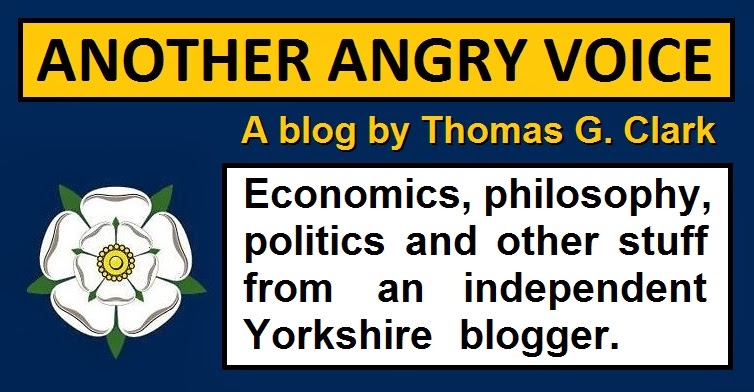Occasionally in life you get to meet one of your heroes. For me one of the great moments was the time I had the opportunity to meet Professor David Nutt, who is a neuropsychopharmacologist from the west country who was thrust into the media spotlight back in 2009 when the then Home Secretary Alan Johnson forced him out of his job as the government's leading "independent"* drugs advisor for daring to point out that certain prohibited substances like MDMA and cannabis are much less harmful and addictive than legal substances like alcohol and tobacco.
I admire David Nutt for the fact that he was prepared to stand up for his scientific research even though it cost him his job. Aside from his obvious integrity I also admire him because he's a leading expert in neuroscience, which is a field of study I'm fascinated by.
I remember Professor David Nutt decrying the massive obstacles put in the way of research into psychoactive substances by the ideological driven prohibitionists and their "war on drugs". He said that trying to conduct research into the brain without using psychoactive substances is like trying to conduct research into the cosmos without telescopes, or research into microbiology without a microscope.
Research findings
The astounding results of research that David Nutt and other scientific experts have conducted into substances like LSD, psilocybin mushrooms, DMT, ketamine and MDMA (in spite of all of the prohibitionist barriers to such research) provide a compelling case that Professor Nutt is absolutely right that psychoactive substances are vitally important tools for understanding the human brain.
Here are some of the fascinating findings over the last few years.
- University College London conducted brain scans on people using LSD. The results were incredible. David Nutt compared the findings to the discovery of the Higgs Boson in scale of importance.
- In 2014 King's College London did fMRI scans on people using psilocybin and found that the it creates a state of hyperconnectivity in the brain, causing areas of the brain that wouldn't normally connect to synchronise with each other.
- Modern meta-analysis of old LSD studies (that were carried out before the great purge of scientific investigation following prohibition of the drug in the 1960s) has found that there are good signs that LSD could be useful in treating alcohol addiction.
- A limited research study in 2012 found that MDMA could be an effective treatment for Post Traumatic Stress Disorder. triggering a number of other studies. Experts believe that the US Food and Drug Administration could licence the use of MDMA for PTSD treatment by 2021.
- Research has shown that the drug Ibogaine (derived from the traditional medicinal plant iboga) is effective in treating opioid addiction. It has the added benefit of lessening the painful withdrawal symptoms too.
- An additional study of 135,000 people that didn't involve administering any psychoactive substances found that people with a history of psychedelic drug use are no more likely to suffer mental health problems than the general population.
The effect of ideological prohibitionism on scientific research
There are several ways that ideological prohibitionism interferes with scientific research into psychoactive substances. In many places research into proscribed drugs is simply banned. In other places like the US and the UK hugely expensive and time consuming bureaucratic barriers have been erected to deter scientific research.
Another way that the prohibitionist mentality obstructs legitimate scientific research is that most scientific funding organisations won't dare touch such research out of fear of the hysterical shrieking of the right-wing press damaging their public reputation. In a culture in which the drugs debate is dominated by those with the most hysterical voices, it's no surprise that the majority of scientific research into proscribed substances is reliant on the limited funds available from the likes of the Beckley Foundation.
Another way in which the political class are obstructing scientific research into the use of psychoactive substances as mental health treatments is the absurdly anti-scientific and unworkable Psychoactive Substances Bill that was voted into existence in January 2016 and will render all substances that produce a psychoactive effect illegal, even if they haven't even been discovered yet!
Now that we have a growing body of evidence that a large number of currently prohibited psychoactive substances have potential mental health benefits for millions of people who suffer conditions like depression, anxiety, addiction and PTSD, it becomes obvious that a political ideology that continues deliberately obstructing research into these substances is deeply immoral.
It's bad enough that the political establishment continue pushing a morality-not-science based mentality that if people ever begin using substances to have fun, those substances have got to be banned as soon as possible (whether there's evidence that they're harmful or not). But the real kicker is that the political establishment are not just denying people's liberty to have fun, they're preventing people with serious mental health conditions from accessing substances that could really help them.
Conclusion
Instead of concluding with my own opinion on the negative effects of the regressive anti-scientific ideology of the political establishment on legitimate scientific research into psychoactive substances, I'll leave the last word to a scientist who has conducted several of these fascinating research projects, despite all of the barriers put in place by the ideologically driven prohibitionism crowd.
"It would be nice if the government based their policy decisions on scientific evidence, and if they gave that primary consideration rather than secondary. Now they try and fit scientific data into their policies." - Robin Carhart-Harris
Another Angry Voice is a "Pay As You Feel" website. You can have access to all of my work for free, or you can choose to make a small donation to help me keep writing. The choice is entirely yours.



No comments:
Post a Comment